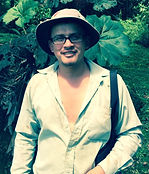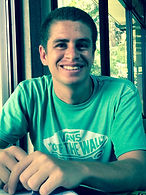

Reventazon Tropical Research Station
Costa Rica

Judith Krieg, MD, MPH is co-owner of Tierra Serena. She has a degree in Medicine (MD) and Public Health (MPH) from the University of Illinois at Chicago. She has retired with over 30 years’ experience in academic medicine as a faculty member, physician, researcher and administrator in Chicago.

Richard Krieg, PhD, Tierra Serena co-owner, is Editor of the Journal of Critical Infrastructure Policy, based in Washington DC. He has a PhD in Health Policy and Administration from the University of Chicago. He served for 2 years as a Peace Corps Volunteer in rural Brazil. He has held executive positions in public health, philanthropy and higher education. These include Commissioner of Health for the City of Chicago and Director of Policy Analysis and Planning for the Metropolitan Chicago Healthcare Council. He was Arthur Rubloff Professor of Public Administration at Roosevelt University (tenured chair) and Director of its Institute for Metropolitan Affairs. He retired after 13 years as founding President and CEO of The Horizon Foundation, a $110 million health philanthropy established by Johns Hopkins Medicine.

Carolina Seas works at RTRS in species identification (including plant identification and specimen preservation), data analysis, report and slideshow preparation, community education and other projects. She has also provided guided nature walks at RTRS. Caro has always been absorbed by conservation and environmental management andat the graduate school at the Costa Rican Institute of Technology (Instituto Tecnológico de Costa Rica) in Natural Resources Management. She served in senior administrative roles at the Tirimbina Biological Reserve in La Virgen de Sarapiqui. She has done student research at La Selva Biological Station with bioluminescent fungi. Caro is also an Assistant Editor for the International Journal of Tropical Biology. She will be continuing her graduate studies at CATIE with the goal of working with microfungi and endemic plants and how they are affected by climate change.

Cristhian Ureña has worked since late 2012 at the Reventazon Tropical Research Station in the areas of species identification, the analysis of bird populations, tropical forest management and hardwood production, tree and plant conservation, animal capture/release, new trail development, community education and other projects. He has also served as a field guide at RTRS and assisted in local community education. He has worked intensively in the area of sustainable tourism, with a degree in Rural Sustainable Tourism. At school, his final project focused on ecotourism development in small communities in Cartago, Costa Rica. Cris also worked on the Carribbean Coast and northern Costa Rica, especially at Tirimbina Biological Reserve, Veragua Rainforest Center, and Rancho Naturalista. He has had the opportunityto share his knowledge about indigenous cultures, cocoa, birds, bats, frogs the natural history of Costa Rica's biodiversity.

Manuel Contreras, Field Assistant, was born and raised in Cachi, Costa Rica. He assists RTRS researchers in trail location and guidance, animal and plant identification, understanding local agricultural practices and other support roles. In addition, Manuel has worked in camera trap studies and new trail development. He has also served a a liaison with the local agricultural community.
Contributors

Juan Carlos Zamora is RTRS’s principle consultant in the areas of geographic information systems and mapping. He is a researcher at Costa Rica’s prestigious Tropical Agricultural Research and Higher Education Center (CATIE) in Turrialba. Juan Carlos is a specialist in GIS, modelling the potential impacts of climate change on human and natural ecosystems. He is also an authority on the refinement of ecological networks intended to improve conservation, particularly the development of biological corridors. He received his Licenciatura (BA) from the University of Costa Rica in Geography and his Maestria (MSc) in Management and Conservation of Tropical Forest and Biodiversity from the Tropical Agricultural Research and Higher Education Center (CATIE).

Willy Pineda studied biology at the University of Costa Rica (UCR) and worked as an assistant in the Museum of Zoology. While working at the museum, Willy discovered his passion for mammalian studies. After completing his bachelor’s degree, he remained at UCR to complete a master’s degree in zoology. His graduate studies focused on the relationship of the wing morphology of Neotropical bats with their diet, feeding guilds, and foraging behavior. Since then, Willy has published several scientific papers, participated in research projects, consultant work and various teaching positions. He is currently working toward his Ph.D. Willy has assisted RTRS in monitoring the local bat population including mist net trapping and compiling information on individual bats.
Research Volunteers

Sam Dupre is a PhD student with the Geography and Environmental Systems Department at University of Maryland: Baltimore County. He earned his MSc in Applied Ecology and Conservation Biology from Frostburg State University studying behavioral ecology in two species of Echimyid rodent in Central Panama. Since 2005, he has served as a board member and ecological director for the Yonso Project, an organization based in Ghana, West Africa that is devoted to international rural community development. At UMBC, Sam is interested in working to identify key factors that influence human livelihood outcomes following attempted adaptation to negative impacts for smallholder coffee production, as well defining barriers to reducing vulnerability to such impacts. At Reventazon Tropical Research Station, Sam is working with Judy, Rich, and Sam Kraft to explore trends in small mammal biodiversity based on land use in coffee cultivation landscapes.

Samuel Kraft is an undergrad student at the University of Maryland Baltimore County where he is working on his B.S. in Geography with a Certificate in GIS. He has focused on the areas of conservation and development. He is expected to graduate in the spring of 2015. Sam was born and raised in Ellicott City, Maryland and spent much of his childhood camping with family, friends and the Boy Scouts in the Appalachian Mountains as well as the eastern United States. He likes to run, sail, and backpack and has other outdoor interests. He has carried his love for the outdoors into his academic work and plans to incorporate it in his professional career. At RTRS, Sam used GIS to develop a map of Finca Krieg's 10 primary trails. The map should aid future RTRS researchers.
.

Lee Kaiser earned his B.S. in Zoology in 2008 at the University of Wisconsin. During his junior year, he spent a semester studying in Costa Rica through the Council on International Educational Exchange. The program centered on tropical ecology and included five weeks of travel and study throughout the country and six weeks of instruction in Monteverde. After his undergraduate studies Lee worked for several years as a field technician on research projects throughout the U.S. and Canada. This included experience with a broad range of taxa, including western yellowjackets, Shiras moose, mountain lions, grey wolves, small mammals, woodland caribou, and white-tailed prairie dogs. Lee spent seven weeks living and working at RTRS where he focused on monitoring coffee fields for bird and insect activity, as well as helping with other RTRS research projects.